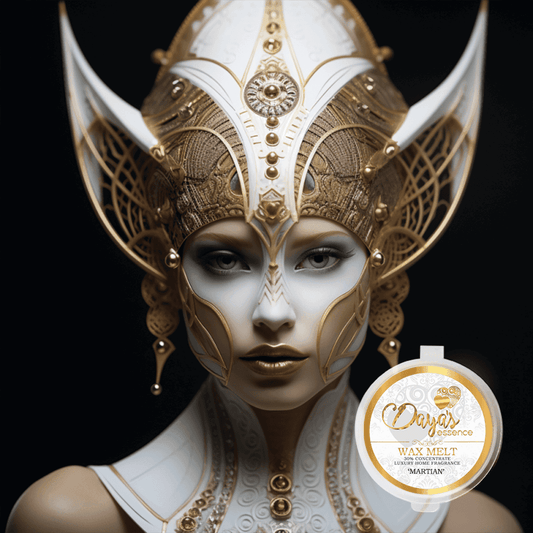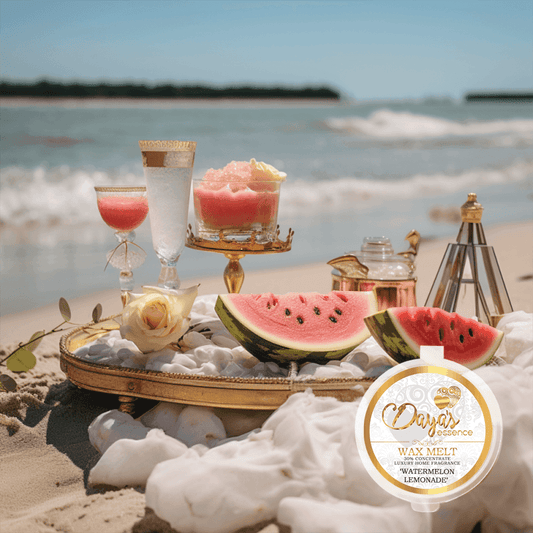Wax Melts and Pet Safety: Everything You Need to Know | Wax Candle Melts
As someone who loves both wax melts and furry friends, I often get asked about their compatibility. It's a fair question! We want our homes to smell delightful, but not at the expense of our beloved pets.
Are wax melts safe for pets?
Wax melts can be safe for pets, but it’s crucial to understand the difference between essential oils (natural plant extracts, which can be harmful to pets, like eucalyptus and citrus) and lab-made fragrance oils (synthetic chemicals compounds designed to mimic scents)
Some fragrance compounds, like d-limonene or linalool, eucalyptus can irritate pets, especially in high concentrations.
When I say: "High concentration" this is referring to the actual chemical such has d-limonene or linalool etc which is considered high concentration if that chemical has a round 10 to 20% amount in the oil.
In melts, these specific chemicals are used in much smaller, safe amounts within the fragrance oil. Our 30% fragrance load relates to the scent strength and longevity, not harmful chemical concentrations.

The Scoop on Fragrance Oils & Essential Oils
First things first, let's clear up some confusion. Not all fragrance oils are the same. Some are purely synthetic, meaning they're concocted in a lab, while others contain essential oils.
Essential oils are natural extracts from plants, known for their powerful scents. But not all of them are pet-friendly, and some synthetic fragrances can also be problematic, especially when inhaled.

Ingredients to Watch Out For:
Before you panic, this doesn't mean you need to ditch all your wax melts!
But, it's good to know which essential oils and fragrance compounds could be problematic for your furbaby when inhaled.
The below list is a few examples, please research for further deep dive.
Essential Oils to Avoid for Cats
| Tea Tree (Melaleuca) |
| Citrus oils (d-limonene) |
| Peppermint |
| Lavender |
| Pine |
| Cinnamon |
Essential Oils to Avoid for Dogs
| Eucalyptus |
| Tea Tree (Melaleuca) |
| Pine |
| Cinnamon |
| Ylang Ylang |
| Clove |
Fragrance Compounds (Inhalation Focus):
| D-limonene | Found in citrus oils, can cause respiratory irritation in cats and dogs when inhaled in large amounts. |
| Linalool | Found in lavender, basil, and coriander oils, can be mildly irritating to the respiratory system in both cats and dogs. |
| Benzaldehyde | Commonly used in almond-scented fragrances, can irritate the respiratory tract when inhaled in large amounts. |
| Citral & Citronellal | Found in citrus oils, can cause respiratory irritation in some animals when inhaled in large amounts. |
It's important to remember that the concentration of these compounds in wax melts is typically low, and the risk of respiratory irritation from inhalation is minimal for most pets.
However, if your pet has a pre-existing respiratory condition or shows signs of discomfort like sneezing, coughing, or wheezing, it's best to be on the side of caution and avoid using wax melts with these ingredients.

Transparency is Key: A Note on "Pet-Friendly" Claims & CLP
As a wax melt maker, I'm all about honesty and transparency. I believe in being upfront about what goes into my products. Some of my fragrances contain small percentages of d-limonene, eugenol, linalool, citral, and citronellal.
I never claim my products to be "pet-friendly"
Because every pet is different.
If you have pets at home, I encourage you to do your own research and consult with your vet to determine if wax melts are right for your household. I'm always happy to answer any questions you may have about the ingredients in my products.

COMMON COMPONENTS
The reality is 99% of wax melt makers, candle makers, room spray, and diffuser makers use fragrance oils containing similar compounds to the ones I use in small amounts. If you take a look at other makers' CLPs, you'll often find these compounds that even I use are also listed.

This is because they're common components of many fragrances that help create those amazing scents you love.
LITTLE LUNGS.
Inhaling these compounds in the amounts typically used in wax melts is unlikely to cause harm to your pets.
However, it's important to be aware that every pet is different, and some may be more sensitive to certain scents than others, it's also worth noting too, if you have fish tanks or other reptile tanks or birds to use your scented products away from them and ventilate your room.

In all my years of trading, I've never encountered any issues or complaints from my customers with pets, including those with small animals and my mum, the ultimate cat lady with her feline sanctuary in her house.
Pet-Friendly Claims: Fact or Fiction?
While some makers may genuinely formulate their products with pet safety in mind, others may be using it as a marketing tactic.
Always check the ingredients list (CLP - Classification, Labelling, and Packaging) and do your research to ensure the product is truly safe for your furry friends.

Safety First: Simple Steps to Keep Your Pets Happy
| Use fragrance products in well-ventilated areas |
| Keep wax warmers and melts out of reach – because pets are naturally curious. |
| If your pet acts strangely, stop and talk to your vet. |
Bottom Line: You Can Have Your Wax Melts and Pets Too!
You can absolutely enjoy your wax melts without worrying about your furry friends. Just be informed, choose reputable brands, and use common sense.
Remember, a safe and happy home is a fragrant one – for you and your pets!





